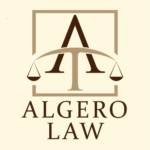Do you have a loved one that was injured in an accident and can no longer take care of themselves? Maybe your mom, dad, grandma, or grandpa have developed memory issues such as dementia or Alzheimer’s. Often, when these things happen, we have no Idea what to do next. I mean the doctors need you to sign things, the bank won’t let you get access to their accounts, and most importantly, your loved one needs help! This presents major questions, and serious implications based on your answers. Most people have heard of a “Power of Attorney.” But what is that?
A power of attorney is a legal document/contract whereby one person grants concurrent power to act on behalf of themselves to another person. The classic example is when someone is getting a will or estate plan done, they will often sign a document giving a specific person the power to make decisions about their health, finances, property, etc.
- This document can either begin on the date specified in the contract or be conditional on an event occurring such as an accident or medical diagnosis.
- This document provides for concurrent This means that the person being given the power and the person giving the power both have the same power to enter/terminate contracts, buy/sell property, and make healthcare decisions.
- Powers of attorney can be limited to certain topics and decisions such as “financial” or “medical.” These are called limited powers of attorney.
- It is also important to note that these documents are revocable provided that the person who made them is of sound mind and reason when they are revoking them.
- Because these are contracts, the person granting the power must have the capacity to do so when they make and/or sign the document. If they do not have capacity to contract, then an interdiction may be the best alternative.
Unlike a power of attorney, an Interdiction is a court action to give power over the affairs of a loved one who is still living to another person. This is not a contract, it is a suit filed in court whereby the court will evaluate the possible interdicts ability to care for themselves or their affairs. If the court determines that the interdicted person is unable to properly care for themselves or their affairs, they will appoint a “curator.” This person will have the full legal authority to act on behalf of the interests of the interdict. An interdiction is different from a power of attorney in a few different ways:
- The powers are not current – this means that the interdict no longer has any powers to make decisions for themselves or their affairs
- This cannot be done without convincing a court by clear and convincing evidence that the person cannot take care of themselves.
- The interdicted person cannot revoke or change the interdiction, only the court can.
However, interdiction is similar to power of attorney in a few important ways:
- The interdiction can either be full or limited which means the court can give complete power over everything or limited power over just financial/medical/other decisions.
- Interdiction can be undone or modified if the interdicted person recovers, or the court is no longer convinced it is necessary.
If you aren’t sure which option is right for you or your family member, call Algero Law at 337-240-9805 for a free consultation.

